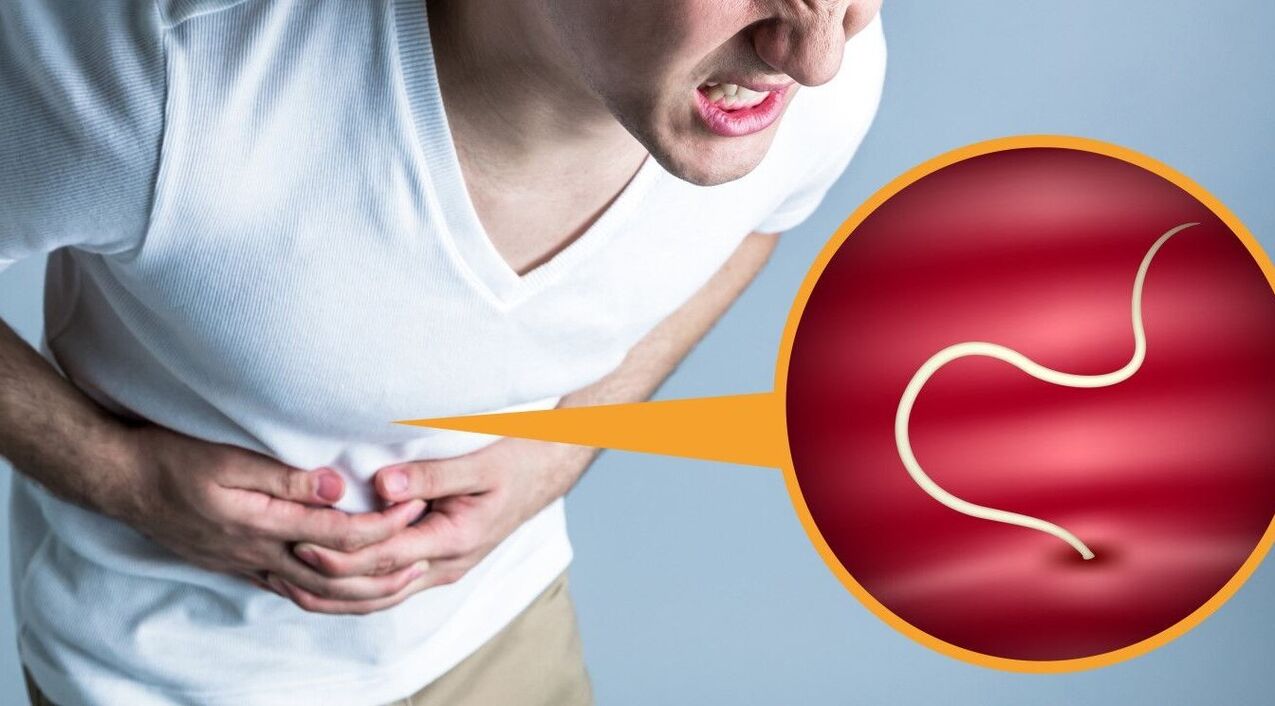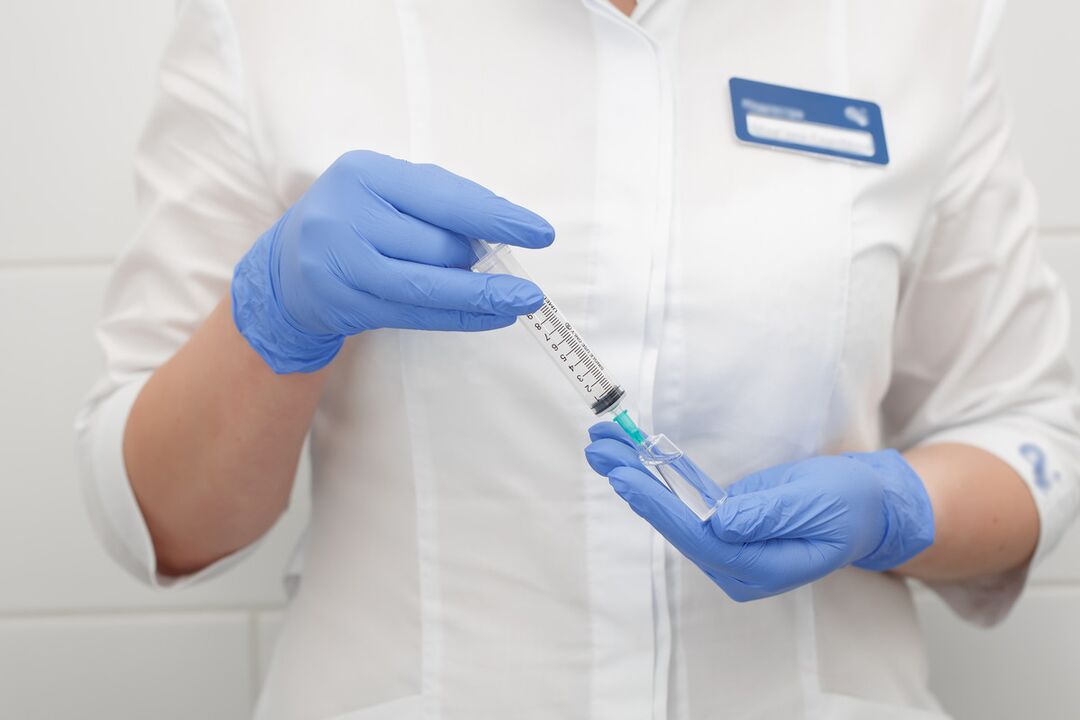
Worm infestations are observed in more than 1. 5 billion people. You can become infected with worms through food, raw water, or contact with a sick person.
Helminthiases or helminthic infestations are a group of diseases caused by parasitic worms that live in the human body. According to the most recent data, 1 in every 100 people is a hidden carrier and around 80% of new cases of the disease occur in children and adolescents. At the same time, helminthiasis is not only recorded in underdeveloped countries: outbreaks of enterobiasis and ascariasis often occur among wealthy segments of the population.
The wide distribution of helminthiasis is explained by the asymptomatic course of the disease in the initial stages. Furthermore, symptoms of infestation do not appear when the number of parasites in the body is small. The patient may not suspect the presence of parasites for a long time, but still infect others.
How dangerous are worms?
Today, there are 360 known species of worms that are dangerous to humans. Most of them parasitize in the human intestine or liver, but depending on the type of parasite and its life cycle (egg, larva, adult), any organs and systems can be affected: lungs, heart, central nervous system, muscles, eyeball, etc. Furthermore.
The main damages caused by helminths are:
- gradual development of anemia (insufficient number of red blood cells).Worms consume nutrients from the intestine, as a result of which the body does not receive enough micro- and macroelements, the patient loses weight and suffers from vitamin deficiency;
- destruction of organs and tissues.Many worms penetrate the intestinal walls and damage surrounding tissues during migration. Microscopic wounds and ulcers form on the organs, the gastrointestinal mucosa is constantly inflamed and the risk of infection increases;
- pathologies of the nervous system.Worms not only destroy the tissues surrounding them, but also release waste products - toxins that have a destructive effect on central and peripheral nerves. The patient becomes nervous, irritable and bothered by headaches, insomnia, lethargy and apathy;
- Allergic reactions.Worm waste (toxins) are also dangerous allergens. Therefore, with helminthic infestations, a rash often occurs, itching appears, and nausea and vomiting are possible.
Helminth infestations in children can cause developmental delays and lead to dangerous complications: from perforation (through ulcers) of the intestines to paralysis of the arms and legs.
Helminths are typical representatives
The most common types of parasites include:
- earthworms– roundworms that penetrate the rectum and colon. Infection occurs when personal hygiene rules are not followed;
- roundworms– roundworms that attack the small intestine. During the development cycle, they can migrate along with the blood and lymphatic flow, entering the lungs and heart;
- whipworm- a roundworm that lives in the large intestine. Penetrates the mucosa with the help of a thin head, damaging tissue integrity and causing microulcers;
- opisthorchis– flatworms that attack the liver. The parasites obstruct the ducts, causing stagnation of bile and disrupting the normal functioning of the organ;
- bowed heads- roundworms that parasitize the duodenum. Infection occurs through contact with larvae, which pierce the skin, enter the bloodstream and spread throughout the body;
- bull tapeworm- a tapeworm that reaches up to 10 meters in length. It occupies almost the entire intestine, leading to severe exhaustion;
- intestinal eel– roundworms that penetrate the colon and cecum. To lay eggs, the worms approach the anus, causing intense itching in the anal region;
- Echinococcus– tapeworms that affect not only the gastrointestinal tract, but also the liver and lungs. They cause echinococcosis, a disease in which cysts form in various organs of a person.

How are worms transmitted?
According to the WHO, more than 1. 5 billion people worldwide suffer from soil-transmitted helminthiasis. There is a common misconception that you can only become infected with worms by consuming low-quality foods: untreated water, unwashed fruits and vegetables, or unprocessed meat and fish. But that is not true. Some parasites can penetrate intact skin.
Helminth larvae penetrate the skin, enter the capillaries and spread throughout the body along with the bloodstream. For humans, these punctures are not sensitive - it is very difficult to suspect an infection. You can also become infected with parasites by inhaling microscopic eggs along with dust.
How can you tell if you have worms?
Depending on which organs are affected by helminth infestation, patients may develop conjunctivitis, cough, headaches, swelling, and tremors in the extremities. In cases of severe vitamin deficiency, joint pain appears, hair falls out and nails begin to peel. In children, helminthiasis can cause delays in physical and intellectual development.
Common symptoms of worms in humans are:
- malaise, weakness, fatigue;
- allergies, such as rashes, coughing, asthma attacks;
- decreased or increased appetite;
- nausea, vomiting without poisoning;
- stomachache;
- diarrhea or constipation;
- weight loss, even if your appetite is good;
- trouble sleeping, insomnia;
- inflamed or enlarged lymph nodes;
- fever for no reason;
- pain in muscles and joints without exercise;
- snoring or grinding of teeth during sleep;
- presence of worms in feces;
- itching in the anal area (usually with pinworms).
How to find out if there are worms?
It is impossible to independently determine the presence of helminthic infestation. In the early stages, the disease can be practically asymptomatic. The patient does not feel pain, the immune system can suppress the pathogenic effects of toxins and allergens for some time. As a rule, exacerbation begins during the period of larvae migration or with an increase in the number of worms. The stronger the infestation (i. e. , the more parasites), the more symptoms appear.
However, the asymptomatic course of the invasion is dangerous - the patient infects others and his health gradually worsens. To detect the disease, it is necessary to undergo preventive examinations periodically in the hospital. As part of prevention, the therapist prescribes examinations for worms at least once a year. If you live in an endemic region - once every six months.
Helminth analysis
To detect helminthic infestation, the following tests may be prescribed:
- stool analysis.Feces are examined for the presence of helminth eggs. The analysis does not require prior preparation: the patient simply needs to bring a stool sample;
- analysis for enterobiasis.To determine enterobiasis (a disease caused by pinworms), simply take a scraping (smear) from the anal area. Typically the test is prescribed in the morning, before going to the bathroom;
- blood test for specific antibodies.The most revealing study that allows us to identify parasites such as roundworms, opisthorchis, acne and lamblia.
How long is a stool test for worms valid?
A stool test for worms allows experts to detect helminth eggs (if present). This study does not provide a 100% guarantee of detection, as the number of eggs depends on the life cycle of the worms and may periodically not be detected in feces, although the invasion remains. Therefore, in most cases, doctors recommend taking stool tests two or three times with a short break between tests.
Blood test for parasites
A blood test for specific antibodies is the most informative method for detecting helminth infestation. After the analysis, the doctor will not only be able to talk about the presence of worms, but also determine their type and thus select the most effective therapeutic complex.
Worms are recognized by the human immune system as pathogens: the body begins to produce specific antibodies to fight the parasites. This is what the analysis reveals.
Which heartworm test is best?
If a parasitic infection is suspected, the doctor will prescribe several tests. A comprehensive study allows you to determine with 100% accuracy the presence of worms, determine the type and stage of the life cycle. It cannot be said that any analysis is better or worse: it is necessary to carry out several tests to increase the reliability of the diagnosis.
Where to go if you suspect worms?
If you suspect a helminth infestation, you should make an appointment with an infectious disease specialist. In the early stages, helminthiasis does not have specific symptoms, so it is very difficult to suspect that you or a loved one has worms. As a rule, the patient complains of slight malaise: indigestion, headache, apathy.
If symptoms do not disappear within a week or the condition returns periodically (for example, once every 3-4 months you feel unwell), consult your doctor. Attacks of health problems can be associated with the migration of parasites.
Which doctor treats worms in humans?
The treatment of parasitic infestations is carried out by an infectious disease specialist or parasitologist. But you should not immediately consult a specialist doctor: it is better to consult a therapist. He will prescribe a series of tests and, if necessary, refer you to a parasitologist or gastroenterologist.
How to treat helminthiasis?
If worms are detected, the doctor prescribes antiparasitic medications designed to combat a specific type of worm. Modern medicines are equally effective against worms at each stage of the life cycle: adults, larvae and eggs. In most cases, a single dose of tablets is sufficient, but sometimes a course of medication is necessary - treatment is developed by a therapist or parasitologist.
It is unacceptable to deviate from the developed treatment tactics - this can lead to worm eggs remaining in the body, which will subsequently cause re-infestation.
Along with antiparasitic drugs, drugs that improve the condition of the gastrointestinal tract, vitamins to eliminate vitamin deficiency and antihistamines (for an allergic reaction) can be prescribed.
Helminthiasis: treatment with folk remedies
There are enough methods to treat helminthiasis with folk remedies. Patients are advised to consume a large amount of foods with strong essential oils: for example, drinking clove infusions or eating garlic. Such methods are not only ineffective, but also dangerous.
If the intestines are injured by worms, consuming products with strong essential oils will cause additional irritation of the mucous membrane, increase pain and problems with bowel movement.
You should also not use anthelmintics without consulting your doctor. Some medications cause the death of worms, but do not cause them to be evacuated, that is, they remain in the body, which causes serious poisoning. Safe treatment of invasion is possible only under the supervision of an experienced doctor!
Prevention of helminthiasis
The treatment of helminthiasis must be carried out not only by the patient, but also by all members of his family. It is also necessary to boil bedding and underwear and carry out wet cleaning with disinfectants. In the future, to prevent helminthic infestations, it is recommended:
- control the quality of the food you eat: do not eat unwashed vegetables, fruits and herbs, unprocessed meat or raw fish;
- observe the rules of personal hygiene, do not use other people's towels and utensils;
- undergo a comprehensive examination once a year, including testing for worm eggs.
Helminth infections are highly treatable and do not cause serious harm to the body if detected in a timely manner. Therefore, the main thing is to seek medical help in time. To prevent helminthiasis, it is necessary to follow hygiene rules and undergo regular examinations by a doctor.
Popular Questions
- Does a person lose weight when they have worms?
Weight loss is a possible, but not mandatory, symptom of parasite infestation. Weight loss due to parasitic diseases can be caused by disturbances in the microflora and nutrient absorption processes in the intestines.
- How to remove worms without drugs?
Parasitic diseases (worms) are treated clinically with antiparasitic medications. Only a doctor can prescribe deworming medication. The choice of antiparasitic medications depends on the type of worms.
- Why do worms appear?
The movement of worms in the human body is determined by the characteristics of their life cycles. For most parasites, the way out is how they spread and transmit. When released, the worms can be detected not only in feces, but also in sputum and exhaled air.
























